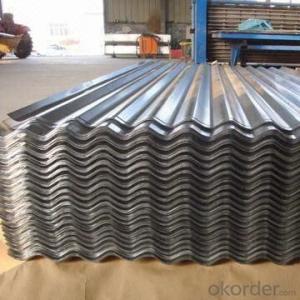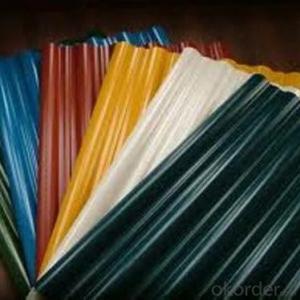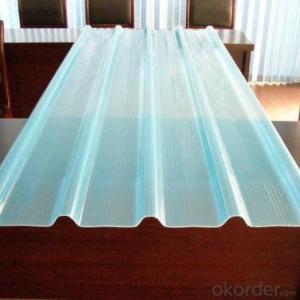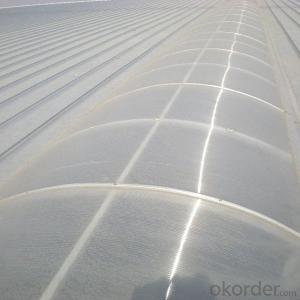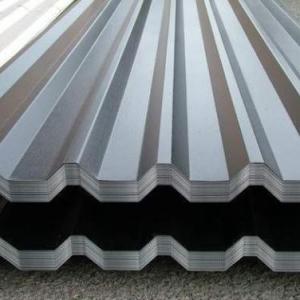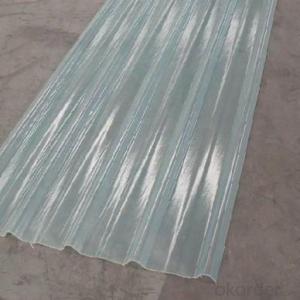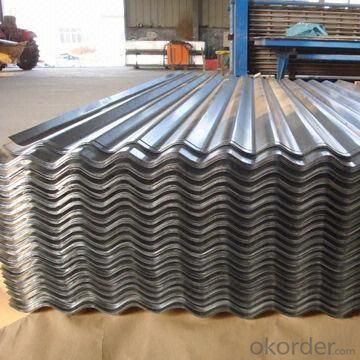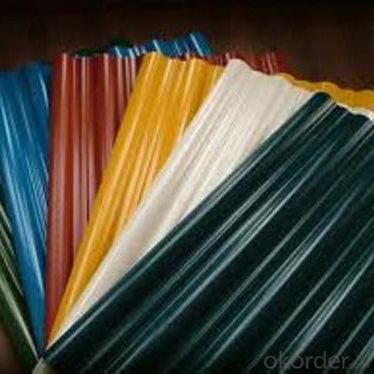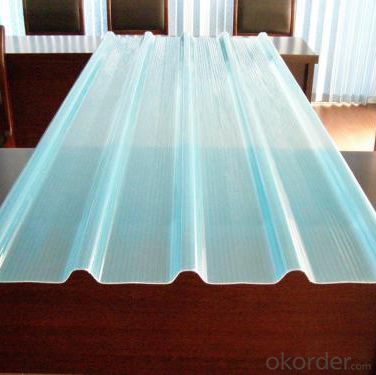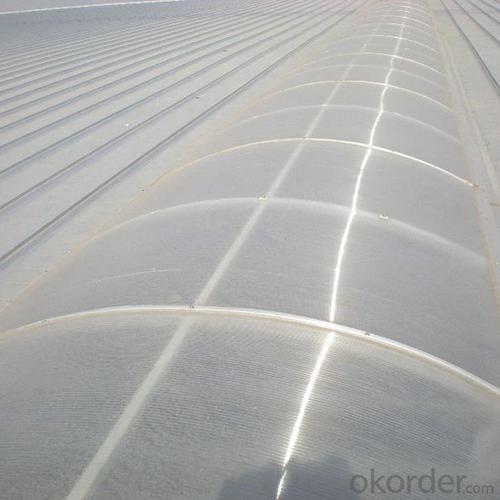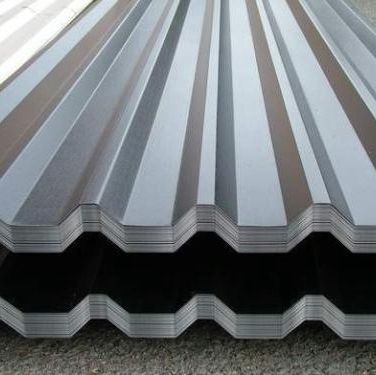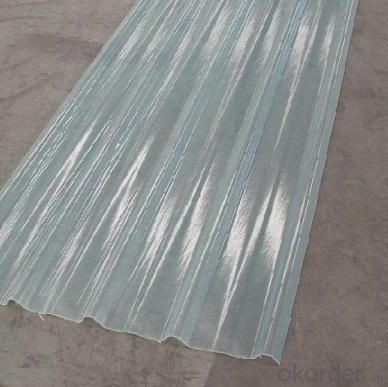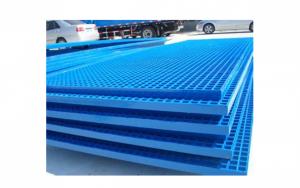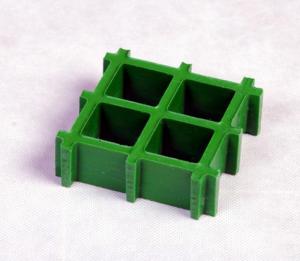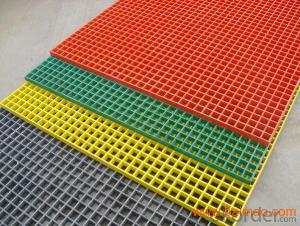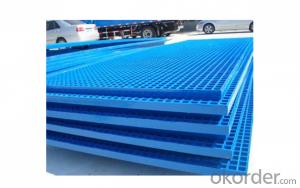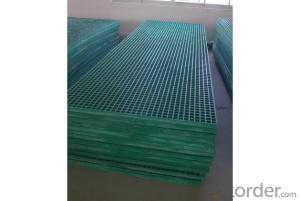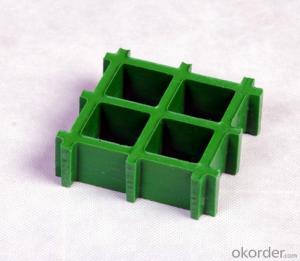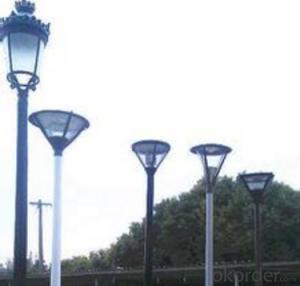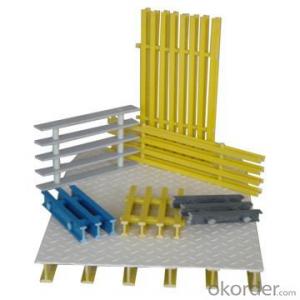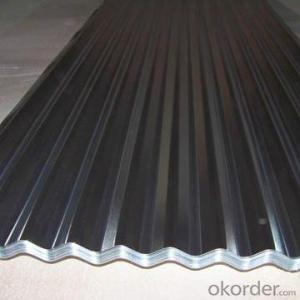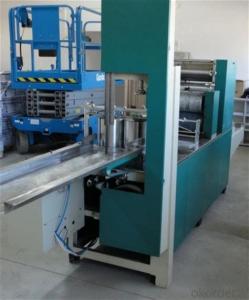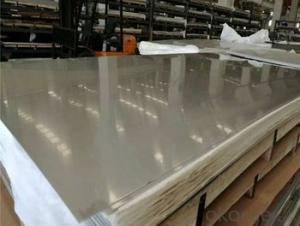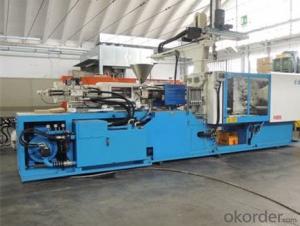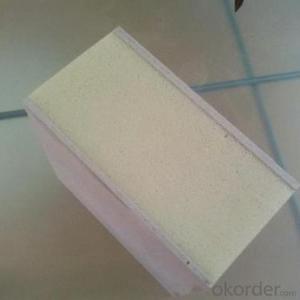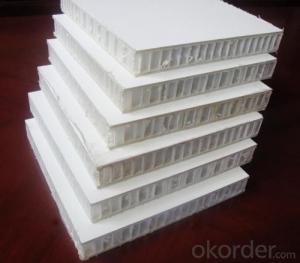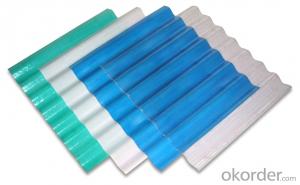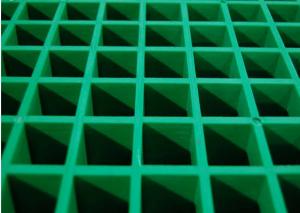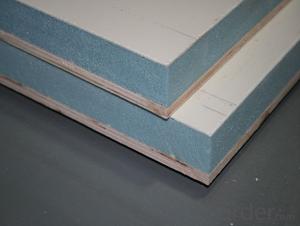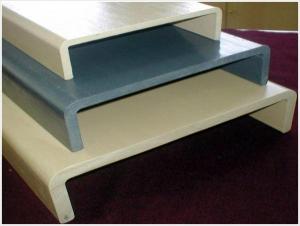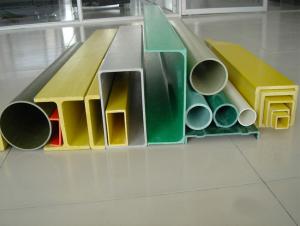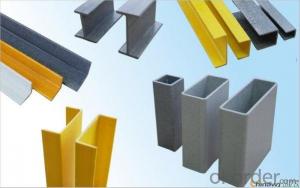FRP Pultrusion Profiles - Pultruded Grating with Anti-Fatigue and Good Quality
- Loading Port:
- Tianjin
- Payment Terms:
- TT OR LC
- Min Order Qty:
- 5000 m.t.
- Supply Capability:
- 100000 m.t./month
OKorder Service Pledge
OKorder Financial Service
You Might Also Like
Specification
PRODUCT DESCRIPTION
Pultruded grating is made by a particular assembly process, which using “I” shape as its main load-bearing and special rod to go through the bearing bar. Pultruded grating include the standard grating and the custom grating, the custom grating can be designed to meet customer’s requirement or special using condition by changing the shape, size and space of the bearing bars, the surface can be covered with lozenge panel, grit panel, or added the anti-slippery sand directly.
FRP pultruded grating has the most characteristics of molded grating, but it has its distinct advantages, it has very high fiberglass content in the loading direction, so it has very high load capability, it has more superiority when used at wide span, so that the basic support will be decreased and the project cost will be reduced accordingly.
SPECIFICATION
The standard space between two crossbars is 6 inch or 12 inch.
Thickness (mm) | Bar width (mm) | Open space (mm) | Open rate (%) | Approx weight (kg/m |
25.4 | 15.2 | 22.8 | 60 | 13.2 |
25.4 | 15.2 | 15.2 | 50 | 15.9 |
25.4 | 15.2 | 10.1 | 40 | 18.5 |
25.4 | 40 | 10.8 | 21 | 14.5 |
38.1 | 15.2 | 22.8 | 60 | 15.8 |
38.1 | 15.2 | 15.2 | 50 | 19.1 |
38.1 | 15.2 | 10.1 | 40 | 22.4 |
50.8 | 25.4 | 25.4 | 50 | 16.6 |
50.8 | 25.4 | 12.7 | 33 | 21.1 |
CHOICE FOR PULTRUDED GRATING
Resin: GP resin, ISO resin, VE resin, Phenol resin
Color choice: Yellow, gray, green, custom color
Surface choice: Groove surface, grit surface, lozenge cover surface
FEATURES
a. Anti-corrosion and anti-rust
b. Light weight and high strength
c. Anti-flammable
d. Anti- fatigue
e. Safe and anti-slippery
f. Anti-ageing
g. Easy of maintenance
h. Excellent electromagnetism property
i. Good economic benefit
FIELDS SERVED
Sewage treatment,
water supply and drainage,
chemical industry,
oil industry,
power engineering,
pulp and paper,
construction engineering,
spinning, marine engineering.
APPLICATION
Operation terrace,
stair walkway,
ground floor,
trench cover,
sidewalk,
foot bridge,
equipment safety fence,
scaffold.
COMPANT DESCRIPTION
CNBM,China National Building Materials Group is a state-owned enterprise in charge of administrative affairs in china building materials industry. Established in 1984, CNBM is a large group corporation of building materials with total assets of 25 billion RMB and a total staff of 30,000.CNBM now owns 200 subordinating firms of solely owned and joint-venture companies.
CNBM International Corporation is one subsidiary of CNBM, we focus on offering good-quality products,professional service and complete solution to our customers. Strong delivery capacity, advanced technology& management, strong financing capability and excellent after-sale service are our advantages in sharing international market.
FAQ
Q1.What's your sample policy?
A:We can supply the sample if we have ready parts in stock, but the customers have to pay the courier cost.
Q2.Can you produce according to the samples?
A: Yes, we can produce or modify the products according to your request.
Q3.How do you deliver the goods to my country?
A:We can provide international express, such as DHL, EMS, UPS, FedEx, etc. We select air freight and sea freight upon your requests. Quotations if without mentioning the shipping costs are shipping fee excluded.
Q4.How much does it cost to ship to my country?
A:When you goanna to place an order, please contact us, because different country has different freight.
Q5.How to get the catalogue?
A:please contact us and tell us what you are looking for.
We will try our best to meet customers' demands. Welcome you come here to visit us. We sincerely welcome partners around the world to establish business cooperation with us on the basis of mutual trust, benefit and development.
PICTURES
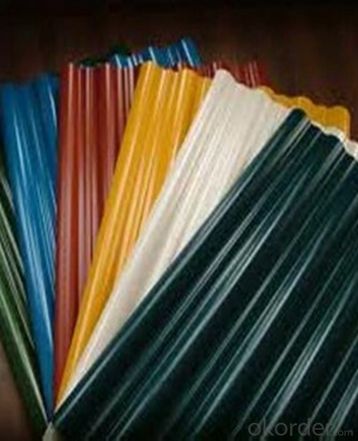
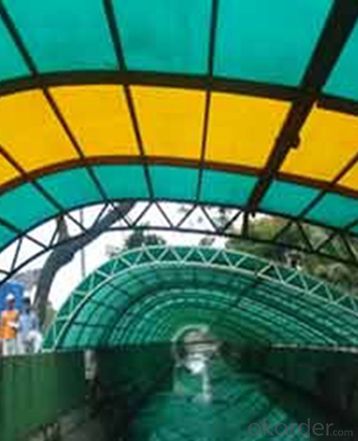
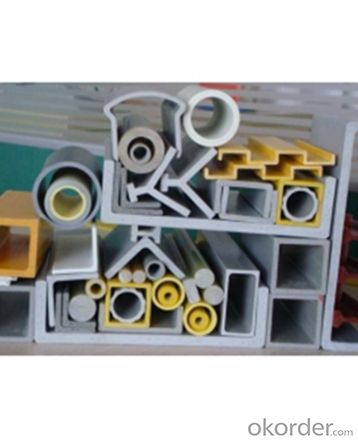
- Q: Can FRP pultrusion profiles be used in the construction of stadium seating?
- Yes, FRP pultrusion profiles can be used in the construction of stadium seating. FRP (Fiber Reinforced Polymer) pultrusion profiles offer high strength, durability, and corrosion resistance, making them a suitable choice for stadium seating applications. These profiles can be customized to meet specific design requirements and provide a lightweight alternative to traditional materials like steel or concrete.
- Q: Can FRP pultrusion profiles be used in the construction of outdoor signage?
- Yes, FRP (Fiber Reinforced Polymer) pultrusion profiles can be used in the construction of outdoor signage. FRP pultrusion profiles are known for their durability, strength, and resistance to various environmental conditions, making them suitable for outdoor applications. These profiles are typically made of a combination of fiberglass reinforcement and resin matrix, resulting in a lightweight yet strong material. Outdoor signage often needs to withstand harsh weather conditions, such as rain, sun exposure, and temperature fluctuations. FRP pultrusion profiles have excellent resistance to corrosion, UV rays, and moisture, ensuring that the signage can maintain its structural integrity and visual appeal over time. Furthermore, FRP pultrusion profiles can be customized to meet specific design requirements, allowing for flexibility in creating unique and eye-catching outdoor signage. These profiles can be easily shaped, cut, and assembled, making them a versatile choice for signage applications. In summary, FRP pultrusion profiles can indeed be used in the construction of outdoor signage due to their durability, resistance to environmental conditions, and flexibility in design.
- Q: What are the different types of FRP pultrusion profiles available?
- There are several different types of FRP (Fiber Reinforced Polymer) pultrusion profiles available, each designed to meet specific application requirements and performance criteria. Some of the most common types include: 1. Standard shapes: These profiles are commonly used in various industries and applications. They come in a range of sizes and shapes, such as round tubes, square tubes, rectangular tubes, and angles. Standard shapes provide versatility and are suitable for a wide range of structural and non-structural applications. 2. Custom profiles: These profiles are specifically designed and manufactured according to customer specifications. Custom profiles offer greater flexibility in terms of shape, dimensions, and reinforcement options. They are often used in unique or specialized applications where standard shapes may not be suitable. 3. Structural profiles: These profiles are designed to provide high strength and stiffness properties. They are commonly used in load-bearing applications where structural integrity is crucial, such as beams, columns, and trusses. Structural profiles are reinforced with additional fibers to enhance their load-bearing capacity. 4. Electrical profiles: These profiles are designed to have excellent electrical insulation properties. They are commonly used in electrical and electronics applications, such as cable trays, busbars, and insulating supports. Electrical profiles offer high dielectric strength and resistance to electrical conductivity. 5. Environmental profiles: These profiles are specially formulated to resist harsh environmental conditions, such as extreme temperatures, UV radiation, or chemical exposure. They are commonly used in outdoor applications, such as structural supports, handrails, and grating systems. Environmental profiles provide long-term durability and resistance to degradation. 6. Fire-retardant profiles: These profiles are designed to have improved fire resistance properties. They are commonly used in applications where fire safety is a concern, such as building construction, transportation, and aerospace. Fire-retardant profiles are formulated with additives that inhibit flame spread and reduce smoke generation. It is important to note that these are just some of the common types of FRP pultrusion profiles available, and there may be other specialized profiles based on specific industry requirements. The selection of the appropriate profile depends on factors such as the intended application, load requirements, environmental conditions, and regulatory standards.
- Q: What is the maximum length of FRP pultrusion profiles that can be manufactured?
- The maximum length of FRP pultrusion profiles that can be manufactured depends on various factors such as the type of material used, the manufacturing process, and the equipment available. However, it is generally feasible to produce FRP pultrusion profiles with lengths ranging from a few feet to several hundred feet.
- Q: Are FRP pultrusion profiles resistant to high-pressure gas?
- Yes, FRP (Fiber Reinforced Polymer) pultrusion profiles are generally resistant to high-pressure gas. FRP materials have excellent chemical resistance and are often used in applications where they come into contact with various chemicals, including gases under high pressure. The specific resistance of FRP pultrusion profiles to high-pressure gas will depend on the specific resin and reinforcement used in their construction. It is important to consult the manufacturer's specifications and guidelines to ensure that the specific FRP profiles being used are suitable for the intended high-pressure gas application.
- Q: How do FRP pultrusion profiles handle cyclic torsion loads?
- FRP pultrusion profiles are designed to handle cyclic torsion loads effectively due to their inherent properties. The continuous fibers in the profiles provide high strength and stiffness, enabling them to withstand repeated twisting without deformation or failure. Additionally, the resin matrix used in the pultrusion process offers excellent fatigue resistance, ensuring long-term durability and performance under cyclic torsion loads.
- Q: Are FRP pultrusion profiles resistant to fading or discoloration?
- FRP pultrusion profiles possess exceptional resistance against fading and discoloration. This attribute stems from the inherent properties of the materials employed in their construction. Typically, FRP profiles are fabricated using a blend of fiberglass reinforcements and a polymer resin matrix, both of which inherently resist UV radiation and other environmental factors that lead to fading and discoloration. The polymer resin matrix used in FRP profiles is specifically designed to exhibit outstanding chemical resistance and UV stability. As a result, the profiles retain their original color and appearance for an extended duration. This makes FRP pultrusion profiles an ideal choice for outdoor applications, where exposure to sunlight and harsh weather conditions is prevalent. Additionally, the pultrusion manufacturing process ensures that the color of FRP profiles remains consistent throughout their entire cross-section. Consequently, even in the presence of minor surface damage or wear, the underlying color of the profile remains unchanged, ensuring a uniform appearance. In summary, FRP pultrusion profiles offer unparalleled resistance against fading and discoloration, making them a resilient and long-lasting option for a wide range of applications, including construction, infrastructure, transportation, and more.
- Q: Can FRP pultrusion profiles be used in the telecommunications and data communication industry?
- Yes, FRP (Fiber Reinforced Plastic) pultrusion profiles can be used in the telecommunications and data communication industry. FRP pultruded profiles have several advantages that make them suitable for use in this industry. Firstly, FRP pultrusion profiles offer excellent electrical insulation properties, making them ideal for applications in the telecommunications and data communication industry where electrical conductivity needs to be minimized. FRP profiles do not conduct electricity, ensuring that there are no interference or grounding issues that could disrupt the transmission of data. Secondly, FRP pultrusion profiles are lightweight yet strong, providing a high strength-to-weight ratio. This makes them suitable for use in the construction of communication towers, antenna supports, and satellite dish mountings, where the profiles need to withstand wind loads and other environmental stresses. Additionally, FRP profiles have excellent corrosion resistance, which is crucial in the telecommunications and data communication industry where equipment is often exposed to harsh outdoor environments. Unlike traditional materials such as steel or aluminum, FRP profiles do not rust or corrode, ensuring the longevity and reliability of the infrastructure. Furthermore, FRP profiles can be easily customized and manufactured in various shapes and sizes to meet the specific requirements of telecommunications and data communication applications. This flexibility allows for the design and construction of complex structures that can accommodate different equipment and technologies. Overall, FRP pultrusion profiles offer a range of benefits that make them well-suited for use in the telecommunications and data communication industry. Their electrical insulation properties, lightweight yet strong nature, corrosion resistance, and flexibility in design make them a reliable choice for supporting infrastructure in this sector.
- Q: Are FRP pultrusion profiles resistant to oil or fuel spills?
- FRP pultrusion profiles exhibit a general resistance to oil or fuel spills, which is well-known in the industry. This is due to their exceptional chemical resistance, particularly against oils and fuels, which is attributed to the combination of the polymer resin and reinforcing fibers. This unique blend creates a robust and enduring material capable of withstanding exposure to various substances. The impermeable nature of FRP pultrusion profiles is another significant advantage, making them impervious to oil and fuel. Consequently, even in the event of a spill, these profiles will not absorb the substances, thus preventing any potential harm or deterioration. Furthermore, FRP possesses corrosion resistance and does not react with oils or fuels, ensuring its longevity and performance. These remarkable qualities make FRP pultrusion profiles highly sought after in industries where oil or fuel spills are a concern, such as oil refineries, chemical plants, and offshore platforms. They provide a dependable solution for applications requiring resistance to chemical exposure, offering a cost-effective and low-maintenance alternative to conventional materials.
- Q: What types of materials are commonly used in FRP pultrusion?
- Commonly used materials in FRP pultrusion include fiberglass, polyester resin, vinyl ester resin, epoxy resin, carbon fiber, and aramid fiber.
Send your message to us
FRP Pultrusion Profiles - Pultruded Grating with Anti-Fatigue and Good Quality
- Loading Port:
- Tianjin
- Payment Terms:
- TT OR LC
- Min Order Qty:
- 5000 m.t.
- Supply Capability:
- 100000 m.t./month
OKorder Service Pledge
OKorder Financial Service
Similar products
Hot products
Hot Searches
Related keywords
